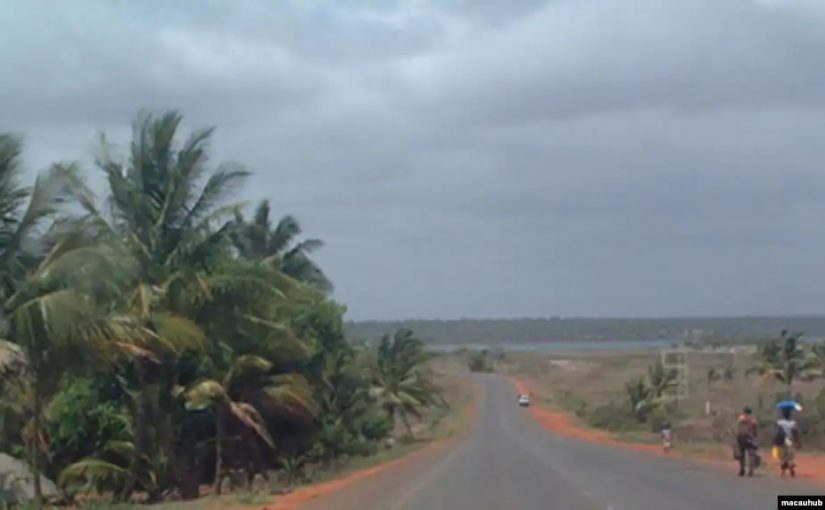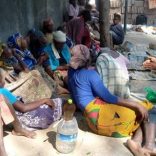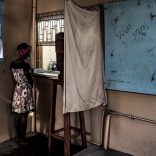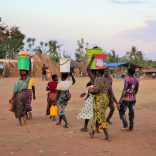Mozambique: UN warns of challenges in combating human trafficking in north
Former Renamo guerrillas restart life in villages where everything is missing

FILE - For illustration purposes only. A road in Manica province. [File photo: VOA Portugues]
Dozens of former Renamo guerrillas demobilised in June following the closure of the former guerrilla’s last base in Gorongosa, recently returned to their villages in the district of Tambara, in the Mozambican province of Manica, where they say they lack the most basic conditions for their social reinsertion.
International partners and partners say they are creating conditions in the villages for the demobilised to resume their life in the community.
Zacarias Gasolina lived in two Renamo bases in Gorongosa for the last 11 years. After accepting the invitation to regroup in 2012 to “fight for a democracy at risk” and return to his village of Muira (Tambara), he shares water with cattle in traditional wells opened in the seasonal riverbed that gives the village its name.
“We share the same water with cattle and goats in the riverbed. We understand that we are consuming inappropriate water,” said Gasolina, who returned to the village with his wife and six children.
Another difficulty encountered by former guerrillas in returning to civilian life is the lack of land to build their homes and agricultural fields for subsistence agriculture.
João Lourenço, who was recruited into the guerrillas in 1981 at the age of 17, was first demobilised in 1994 by ONUMOZ, the United Nations peacekeeping mission in Mozambique, but returned to the bush in 2012 until he was again demobilised in June in Gorongosa.
“We need land for houses and to restart our lives, but we are also hopeful that we can have pensions as soon as possible to reintegrate ourselves economically,” he said.
Ongoing projects
Paolo Sertoli, director of the Italian Agency for Cooperation and Development (AIC) in Mozambique, said that the European Union and the Mozambican government had begun to implement various initiatives in the former guerrillas’ villages of origin.
Through the Local Development program for the Consolidation of Peace in Mozambique (DELPAZ), water boreholes were being opened, and housing spaces and agricultural fields delimited for distribution among the former guerrillas.
“What the European Union, the government and cooperation partners want to do is bring peace through concrete actions, therefore, agriculture and economic diversification are the most important points of this component that we are launching today,” Sertoli said during the delivery of agricultural inputs and water sources in Muira.
Administrator of Tambara District, Pita Doa, highlighted the need to preserve peace, despite all the adversities encountered in the return to civilian life of the former guerrillas.
“Now we need to concentrate to fight our only enemy, which is hunger,” Doa stressed, recalling that the closure of the last base in Gorongosa was the most precise advance towards the end of military hostilities in Mozambique.
The last Renamo base, after 30 years as a former guerrilla base, was closed on June 15, the end of the third phase of the Demobilization, Disarmament and Social Reintegration (DDR) process, which covered the last 348 of the total 5,221 guerrillas who remained in bases in remote areas.












Leave a Reply
Be the First to Comment!
You must be logged in to post a comment.
You must be logged in to post a comment.